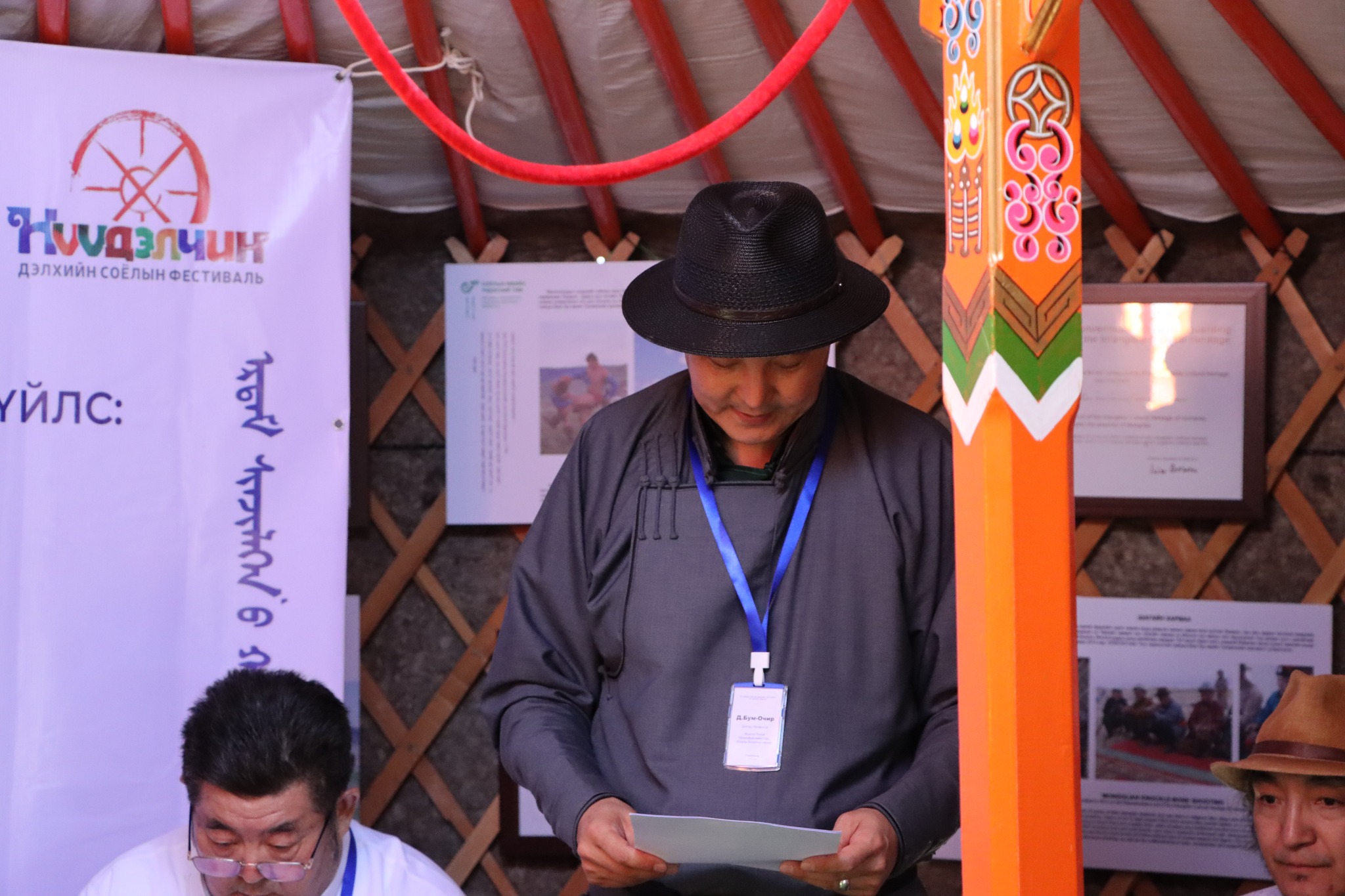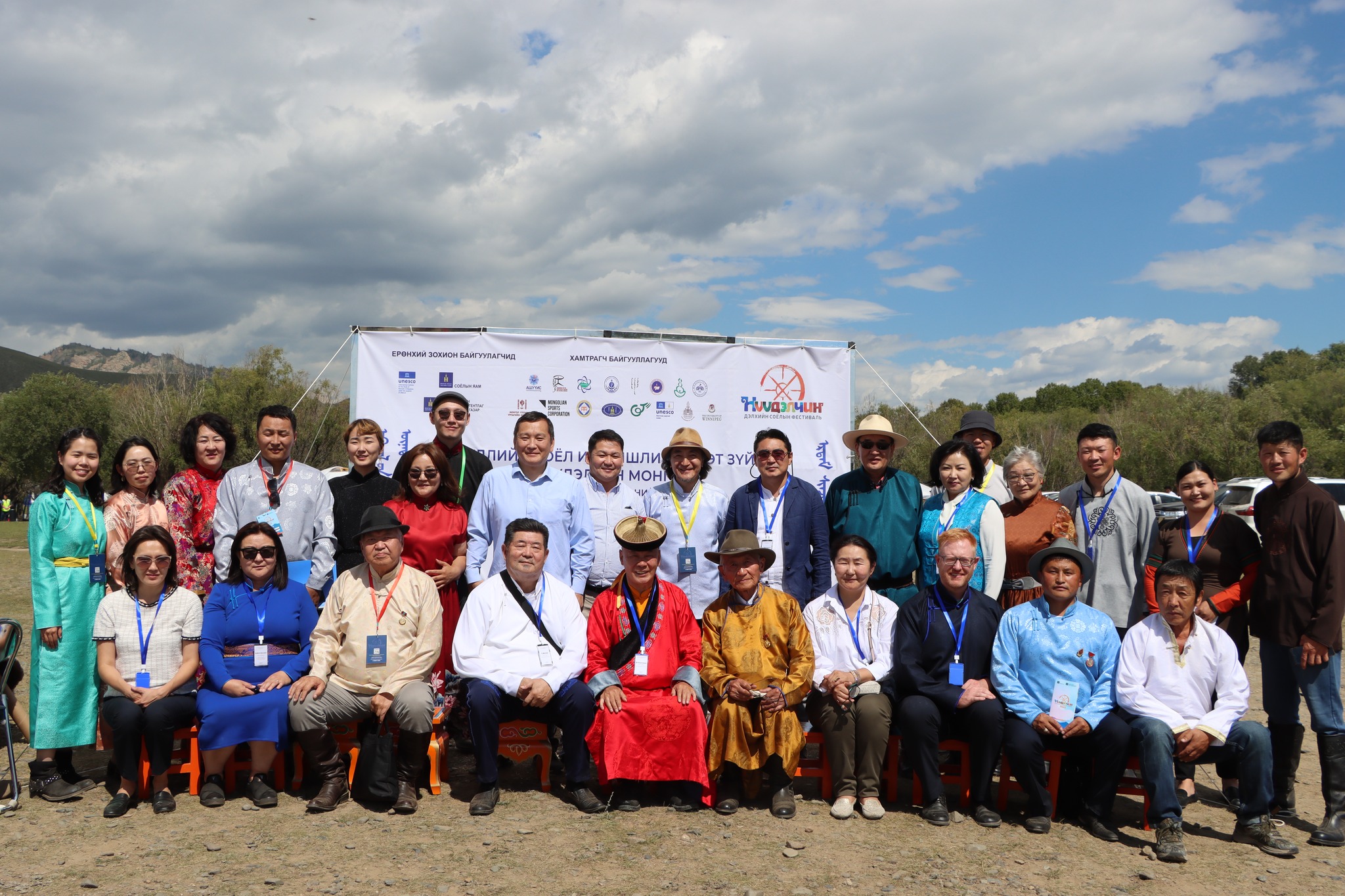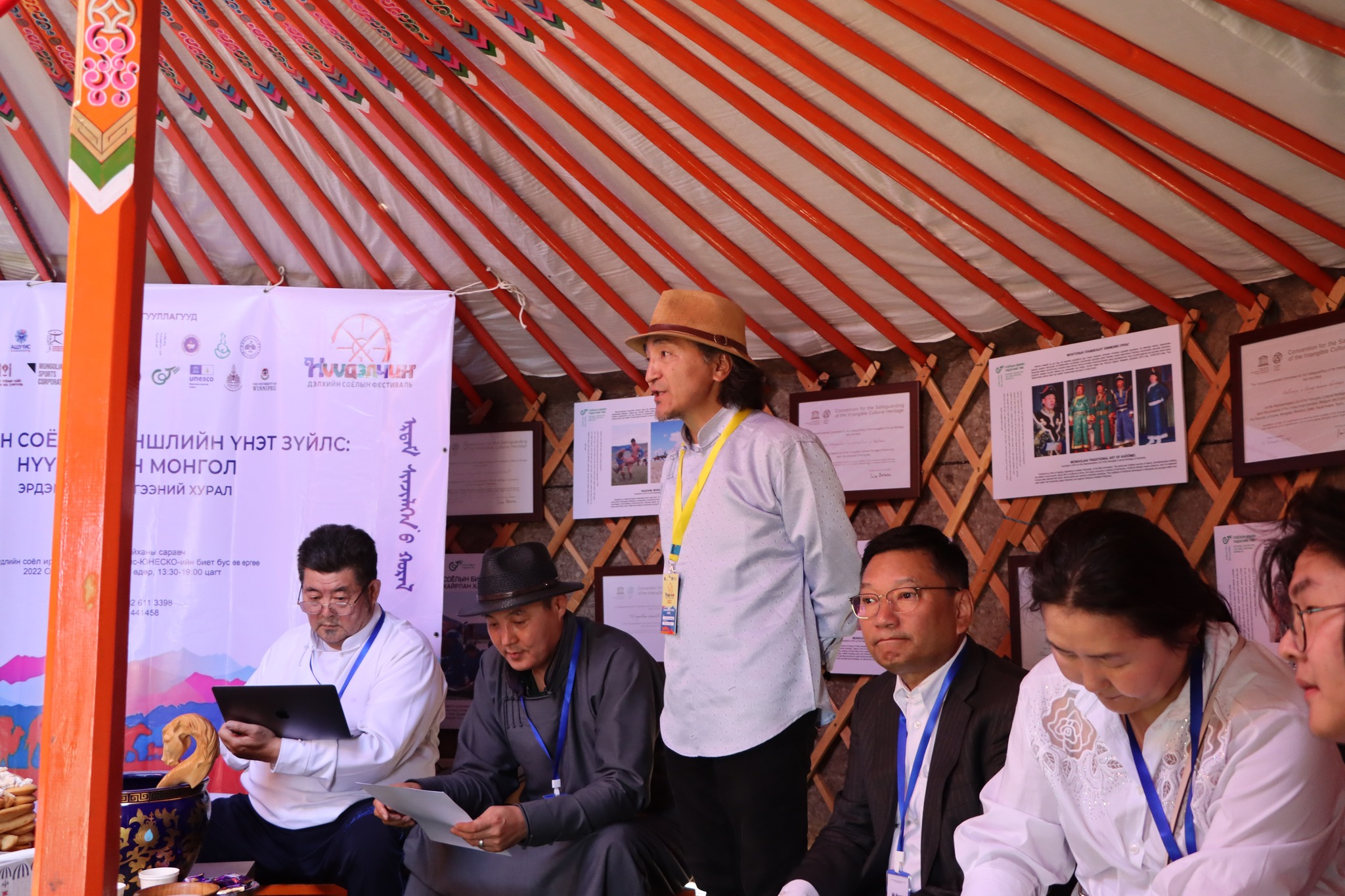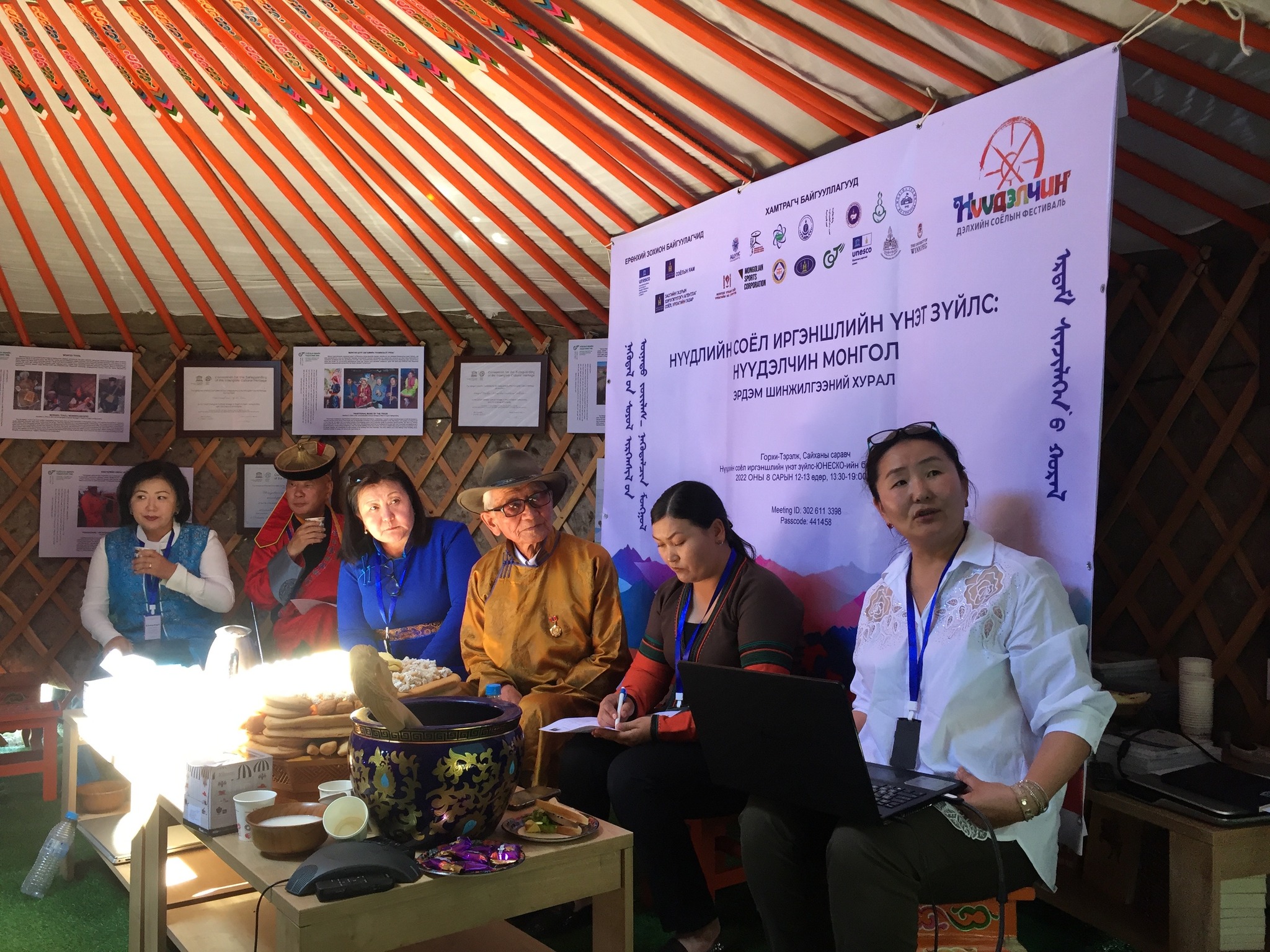The International Institute for the Study of Nomadic Civilizations (IISNC), in collaboration with the Commission on Nomadic Peoples, the National University of Mongolia, the Mongolian Anthropological Association and UNESCO is organizing an International Academic Conference entitled Nomadic Ethics and Intercultural Dialogue, to be held on 22-23 June 2023 in Ulaanbaatar, Mongolia. Keynote speakers: Dawn Chatty, Emerita Professor, University of Oxford, David Sneath, Professor, University of Cambridge The very nature of ethics and morality has long been at the centre of debates among social scientists and practitioners, ranging from discussions of virtue ethics to the “ethical turn” (Mattingly & Throop, 2018). Following the discussion of nomadic ethics, this conference intends first to explore the ethics of so-called nomads, and second, to examine how the ethics of nomadic peoples contribute to intercultural dialogue. The conference further aims to produce knowledge on how nomadic ethics – encompassing ethical practices, beliefs, theories, and culture – are being changed, re-established, or re-institutionalized nomadic societies across Inner Asia and beyond.
This conference builds on ongoing discussions and initiatives regarding the contributions of mobile pastoralists and nomadic peoples to the future of our world, such as the International Year of Rangelands and Pastoralists and the Dana Declaration on Mobile Peoples. It proposes to bring together scholars to critically interrogate discriminatory stereotypes propagated against nomadic peoples which have labelled them as inherently unethical, amoral or uncivilised (Morgan, 1877; cf. Humphrey and Sneath 1999, cf. Khazanov 1983: 1-15, 228-263). In recent years, pastoralists’ cashmere production practices have been targeted in global consumer ethics debates, following claims that nomadic herders treat their livestock inhumanely or that they are destroying rangelands through unsustainable production practices (e.g., Dalton 2109, You 2019). The conference provides a space to examine the ongoing consequences of such normative claims in contemporary society. To dispel these discriminatory stereotypes, this conference builds knowledge of ethical insights and
moral evaluations from the perspective of nomadic cultures and worldviews. The conference thus aims to: 1) Arrive at a shared understanding of how nomadic societies understand ethics and morality; 2) Study and document how nomadic ethics have contributed to fostering intercultural dialogue and social equity; 3) Create evidential knowledge of how ethics are being reformulated and reconstructed in the post-socialist and post-colonial countries; and 4) Increase public awareness of ethics and morality as based on human rights.
The organizers propose the following themes in relation to nomadic ethics; organisers will add new themes based on the papers submitted:
- Environmental Ethics of Nomadic Peoples
- Nomadic moral philosophies
- Nomadic cultures and their transformation
- Intercultural dialogue and peace building
- Cultural rights and human rights
- Ethics and education
- Political construction and its impacts
This conference is open to academic scholars, researchers, and practitioners whose work concerns social science and humanities disciplines such as social and cultural anthropology, philosophy, law, psychology, cultural studies, political science, sociology, human and social geography, history, archaeology, human rights, and governance. The conference will be held with in-person meetings in Ulaanbaatar, Mongolia. There will be limited options for online participation on a special request basis. The primary conference language will be English. A special issue at an appropriate academic journal will be proposed and collectively discussed during the conference featuring collaboration with researchers from the National University of Mongolia, École Pratique des Hautes Études, University of Winnipeg, University of Oxford, MNHRC, and Austrian Academy of Sciences and beyond.
REFERENCES
• Dalton, Matthew. “From H&M to Gucci, Fashion Rethinks Cashmere, Citing Environmental Harm.” The Wall Street Journal, May 13, 2019, sec. Business. https://www.wsj.com/articles/fashion-companies-rethinkcashmere-
11557749119.
•Humphrey, C., & Sneath, D. (1999). The End of Nomadism?: Society, State and the Environment in Inner Asia (Central Asia S.) (p. 368). Duke University Press.
•Khazanov, A.M. (1983) Nomads and the Outside World, (translation), Cambridge, Cambridge University Press. Pp1-15, 228-263
•Mattingly, C., & Throop, J. (2018). “The anthropology of ethics and morality”. Annual Review of Anthropology, 47, 475–492. https://doi.org/10.1146/annurev-anthro-102317-050129
•Morgan, L. H. (1877). Ancient Society or Researches in the Lines of Human Progress from Savagery Through Barbarism to Civilization (1st ed.). Chicago: Charles H Kerr & Company Co-Operative.
•You, Tracy. “Workers Brutally Tear Hair off Goats to Fuel Global Cashmere Trade.” Mail Online, May 14, https://www.dailymail.co.uk/news/article-7027891/Asian-workers-brutally-tear-hair-goats-makecashmere-
leading-H-M-ban-fibre.html
Deadline for the abstract and a short CV: 15 January 2023 Abstract submission link: https://forms.gle/hKQJB6ZWuGnFVFWf9 Notification of acceptance: 1 February 2023
Conference dates: 22-23 June 2023 Writing workshop 20-21 June 2023 (Workshop Call will be announced later)
For inquiries, please contact with Ariell Ahearn: ariell.ahearn@ouce.ox.ac.uk and Byambabaatar Ichinkhorloo: byambabaatar@unesco-iisnc.com






